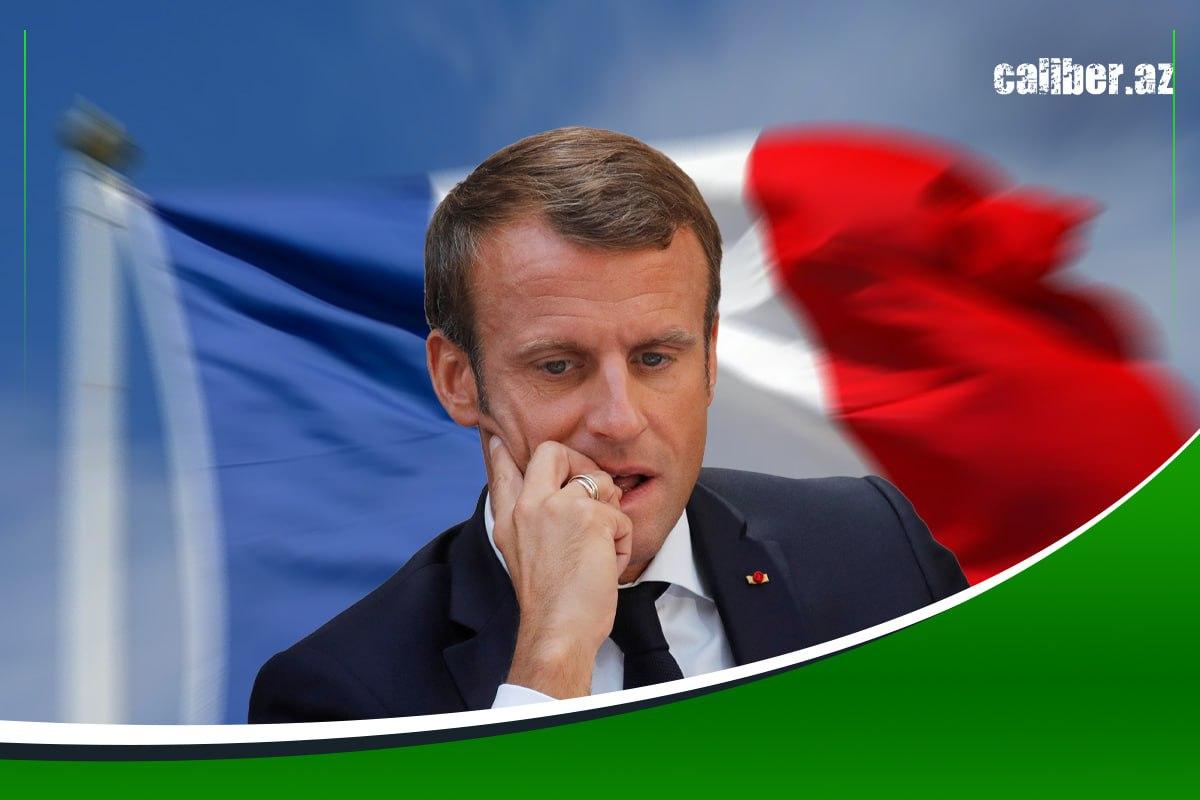France in paralysis: Macron’s resignation or a return to 1968? Politico warns of a Greek-style scenario for Paris
Politico has published an article arguing that France is teetering on the edge of political paralysis, with President Emmanuel Macron facing a deadlocked parliament, public unrest, and even open calls for his resignation. Caliber.Az reprints the article.
French politics are so paralyzed that the resignation of President Emmanuel Macron — an idea once only whispered in the corridors of power — is now being openly debated.
But while Macron’s departure would be an earthquake on the European diplomatic stage, there’s increasing doubt it would fix the gridlock stalling the Fifth Republic.
France’s problems appear to be deeper.
Macron is already scouting around for his fifth prime minister in less than two years, in the expectation that François Bayrou will be ousted on Monday over his unpopular measures to slash the country’s eye-watering budget deficit.
But would a new prime ministerial nominee from Macron be able to force through the billions of euros in budget tightening that the country needs to avoid a debt crisis? And would a new snap election create a workable majority? Neither outcome seems likely. And even if Macron were to resign, his successor would almost certainly face the same obstacles.

For nearly 70 years, the institutions of the French Fifth Republic have held, no matter how often people took to the streets or how long they went on strike. Governments came and went as presidents, for the most part, lasted until the end of their terms, albeit usually less popular than when they began.
The system endured.
But today the legislature is deadlocked, budget talks are flatlining, and murmurs of social unrest are growing louder. Financial markets are jumpy, and Bayrou himself is warning that Paris faces a Greek-style scenario unless it reins in spending.
Against that backdrop, far-right National Rally President Jordan Bardella and far-left leader Jean-Luc Mélenchon, whose parties together account for a third of seats in the National Assembly, are openly calling for the president to go.
The broader conversation about his departure is no longer outlandish and now includes reputable political commentators and some figures from the center right.
“We’re hearing this even from voices close to the Macron camp,” said Mathieu Gallard, a pollster at Ipsos France. “The discomfort is real.”
Hanging in there
Macron is still seen as extremely unlikely to throw in the towel, not least because his premature exit — a presidential election isn’t due until 2027 — would do nothing to resolve the mess.
Surveys show a new legislative election in the coming weeks would most likely yield another hung parliament with a few more seats for Marine Le Pen’s far-right National Rally.
“Politicians wrongly believe the myth that the French choose a leader, and then hand him a working parliamentary majority to act,” said French constitutional expert Benjamin Morel.
That idea, Morel said, was a another casualty of Macron’s 2017 victory as a liberal disruptor who laid waste to France’s bipartisan tradition. The political fault lines that emerged from the rubble have, in a cruel twist of fate, come back to haunt him.
“I haven’t seen this much uncertainty since I was a student in 1968,” said Eric Chaney, former chief economist of the AXA insurance firm, referring to May 1968 protests that brought France to a standstill and led to deep social and political changes.

“Suddenly, you don’t know what is happening to your own economy, your own government,” Chaney said.
New leader, same problems
Known to be headstrong, Macron has often waved off the possibility of an early departure.
The 47-year-old centrist has been a dominant and increasingly polarizing force in French politics for the past eight years, while his promises to forge the country into “the start-up nation” haven’t quite been fulfilled.
The president knows full well there is scant sign that French politicians are prepared to put aside their divisions and resolve the budget malaise for the good of the nation.
Indeed, the mood in France is downright uncooperative, said Gaspard Gantzer, a former adviser to Socialist French President François Hollande.
“We’ll carry on deepening the deficit, nothing will happen and the situation will just get worse,” he said.

But French opposition parties would be wrong to think they can cycle through new prime ministers, fresh elections and even an early presidential election without swallowing the bitter medicine that Macron’s successive governments have tried to administer, Chaney said.
“If people start thinking it’s not so bad, we can live with deficits, we are heading toward a full-blown crisis,” he said. “Germany will start thinking that France is a serious problem and the ECB [European Central Bank] will not be able to help the French government manage its debt.”
Germany, Chaney says, could set conditions on any help the ECB gives France.
But even if Berlin were able to strong-arm the French political establishment, would France follow suit? If the Yellow Vest protests of 2018 and 2019, the pensions protests of 2023 and the current calls for a national shutdown are anything to go by, an increasingly skeptical and restive public has little appetite for sacrifices and austerity.
As for getting rid of Macron, France is a country steeped in regicidal revolutionary history and understands both the attractions and pitfalls of giving the boss the chop.
It’s easy to call for his head — but you’ve got to be ready for the chaos that comes next.








